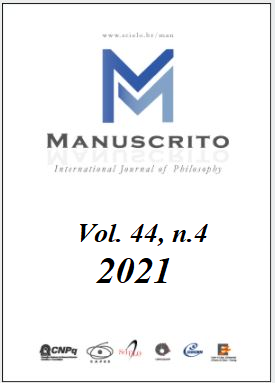Abstract
In this paper I try to answer four basic questions: (1) How the concept of God is to be represented? (2) Are there any logical principles governing it? (3) If so, what kind of logic lies behind them? (4) Can there be a logic of the concept of God? I address them by presenting a formal-logical account to the concept of God. I take it as a methodological desideratum that this should be done within the simplest existing logical formalism. I start with first-order logic (FOL) with identity, and then show that its simplest modal extension (SQML, or the simplest quantified modal logic) is enough for us to formalize a minimally satisfactory theory of the concept of God. I focus exclusively on the monotheistic concept of God.
References
Branson, B. (2019) “No New Solutions to the Logical Problem of the Trinity”. Journal of Applied Logics 6: 1051-1092.
Enderton, H. (1972) A Mathematical Introduction to Logic. New York: Academic Press.
Esposito, J. (1998). Islam: the Straight Path. New York: Oxford University Press.
Foltz, B. (ed.) (2019) Medieval Philosophy: A Multicultural Reader. New York: Bloomsbury Academic.
Gödel, K (1995) “Texts relating to the ontological proof”. In: Kurt Gödel, Collected Works, ed. S. Feferman et al., vol. 3, Oxford: Oxford University Press, pp. 429-437.
Hernández-Ortiz, H.; Cantero-Flores, V. (2019) “A Logical Solution to the Paradox of the Stone”. Journal of Applied Logics 6: 1037-1050.
Hughes G. E.; Cresswell M. J. (1968) An Introduction to Modal Logic. London: Methuen and Co. Ltd.
Krajewski, S; Silvestre, R. (2019) “Logic and the Concept of God”. Journal of Applied Logics 6: 999-1005.
Laurence, S. & Margolis, E. (1999). “Concepts and Cognitive Science”. In: E. Margolis & S. Laurence (eds.), Concepts: Core Readings, Cambridge, MA: MIT Press, pp. 3-81.
Lewis, D. (1986) On the Plurality of Worlds. Oxford: Basil Blackwell.
Linsky, B.; Zalta, E. (1994) “In Defense of the Simplest Quantified Modal Logic.” In: J. Tomberlin (ed.), Philosophical Perspectives 8: Logic and Language, Atascadero: Ridgeview, pp. 431-458.
Margolis, E.; Laurence, S. (2007) “The Ontology of Concepts-Abstract Objects or Mental Representations?” Noûs 41: 561-593.
Menzel, C. (2018) “Actualism”. In: Edward N. Zalta (ed.), The Stanford Encyclopedia of Philosophy (Summer 2018 Edition), URL = https://plato.stanford.edu/archives/sum2018/entries/actualism/.
Molto, D. (2017) “The Logical Problem of the Trinity and the Strong Theory of Relative Identity”. Sophia: International Journal of Philosophy and Traditions 56: 227-245.
Murphy, G. (2002). The Big Book of Concepts. Cambridge, MA: MIT Press.
Resnick, H. (1995). “Kṛṣṇa in the Bhagavad-gītā: A Beginning Ontology from the Gauḍīya Perspective”. Journal of Vaishnava Studies 3: 5-32.
Rosen, G. (2020) “Abstract Objects”. In: Edward N. Zalta (ed.), The Stanford Encyclopedia of Philosophy (Spring 2020 Edition), URL = https://plato.stanford.edu/archives/spr2020/entries/abstract-objects/.
Schurz, G. (2002) “Alethic Modal Logics and Semantics.” In: D. Jacquette (ed.), A Companion to Philosophical Logic, Oxford: Blackwell Publishing, pp. 442-477.
Swinburne, R. (2016) The Coherence of Theism, second edition. New York: Oxford University Press.
Tuggy, D. (2006). “Trinity”. In Edward N. Zalta (ed.), The Stanford Encyclopedia of Philosophy (Winter 2016 Edition), URL = https://plato.stanford.edu/archives/win2016/entries/trinity/.
Zalta, E. (2000) “A (Leibnizian) Theory of Concepts.” Logical Analysis and History of Philosophy 3:137-183.

This work is licensed under a Creative Commons Attribution 4.0 International License.
Copyright (c) 2021 Manuscrito: Revista Internacional de Filosofia


